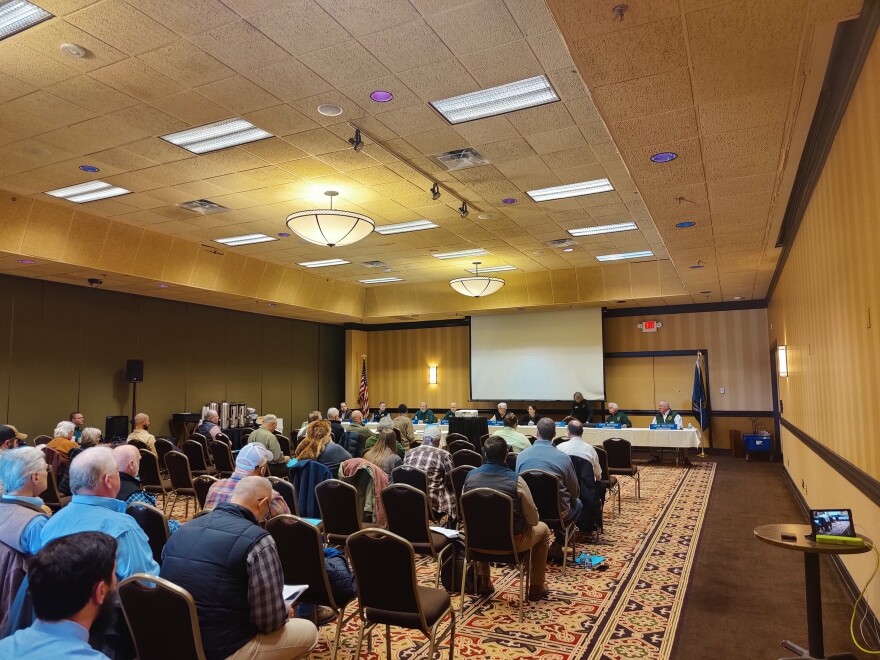An agreement over fishing in the Great Lakes between tribal nations and state and federal officials has been living on borrowed time.
The Great Lakes Consent Decree expired in 2020 and negotiations took almost three years before a new agreement was drafted.
Critics of that agreement were among those to testify in front of the state’s Natural Resources Commission at a recent meeting in Bellaire.
The consent decree regulates fishing rights, especially as they apply to tribes that ceded territory in the 1836 Treaty of Washington. Its purpose is to prevent over-harvesting and maintain a sustainable fishery, while still ensuring tribal members can continue to practice their right to fish the Great Lakes. The consent decree achieves this through regulations on catch limits and types of equipment.
A draft of a new round of regulations agreement is now on the table, as the 2020 Great Lakes Consent Decree is before a federal judge for final approval.
But a group of sport fishers and conservationists is asking that judge not to approve this agreement. The Coalition to Protect Michigan Resources (CPMR) wants the state, the feds and the tribes to go back to the drawing board.
“The Michigan DNR has been the embodiment of science-based stewardship," said Jim Johnson to the Natural Resources Commission. Johnson worked for the state as a fisheries biologist for 25 years, and now serves as an advisor to the CPMR.
"Unfortunately, the proposed consent decree ... represent(s) a 180 degree turn away from science and stewardship,” Johnson said.
The coalition's objection to the new decree stems primarily from the expanded use of gill nets. The group says gill nets kill indiscriminately, and are lethal for much more than just a targeted species of fish.
The state and federal governments as well as four tribal nations filed a response to the CPMR in court last week.
The parties wrote that the coalition’s effort to block the new consent decree is "setting the stage for potentially years of contentious and wasteful litigation ahead."
The court filing goes on to accuse the coalition of couching its objections in threats to the fisheries resource, while actually concerned with “its members' narrow interests."
Members of the coalition denied those claims and told IPR they want sound biology to be at the forefront of the consent decree.
For more from last week's meeting of the Natural Resources Commission in Bellaire, listen to the full conversation above.
Want more news from northern Michigan? Subscribe to the IPR newsletters!


